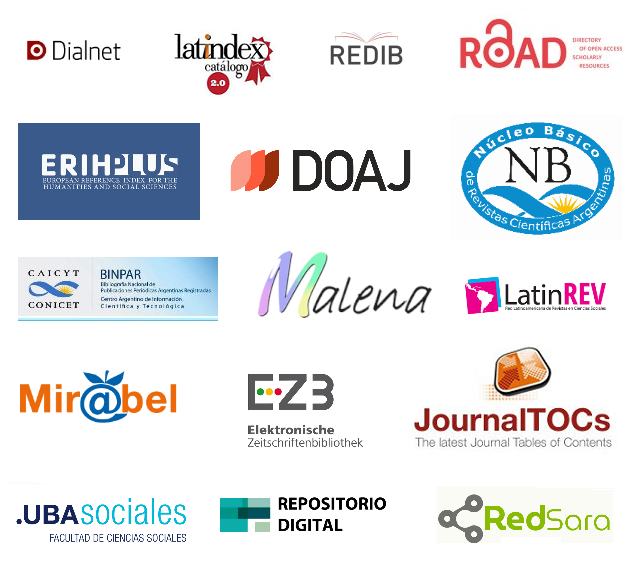Educación, conocimiento y poder: debates lógicos-epistémicos y enfoques alternativos respecto de la naturaleza humana
Resumen
Este artículo se propone analizar los debates contemporáneos en cuanto a la educación, el conocimiento y el poder. Se observan que las diversas formas de abordar la importancia, el rol y el tipo de educación y conocimiento que son relevantes, se fundamentan en visiones alternativas respecto de la naturaleza humana basadas en distintos abordajes lógicos-epistémicos. Mientras algunas posturas asocian a la educación como mecanismo de emancipación individual, otras consideran que es parte de un ejercicio de dominación. A partir de la identificación de cuatro corrientes principales (neoliberal, marxista-pedagógica, biopolítica y psicopolítica) se realizará un estudio descriptivo y comparado con el fin de comprender el andamiaje lógico-epistémico de cada una de ellas.
Palabras clave
Texto completo:
PDFDOI: https://doi.org/10.62174/aei.3063
Referencias
Abramovitz, Moses y Paul David. "Technological change and the rise of intangible investments: the US economy's growth-path in the twentieth century". Employment and Growth in the knowledge-based economy, Paris: OECD, 1996
Agamben, Giorgio. Estado de excepción. Homo sacer, II, I. Buenos Aires: Adriana Hidalgo Editora, 2003
Becker, Gary. Human Capital: A Theoretical and Empirical Analysis, with Special Reference to Education
Blakeley, Nic, Geoff Lewis and Duncan Mills. The Economics of Knowledge: What Makes Ideas Special for Economic Growth? Wellington: New Zealand Treasury Policy Perspectives, 2005
Campana, Melisa “Para una lectura crítica del desarrollo humano” en Andes vol.24 no.2, 2013
Camp van, Nathan. “From Biopower to Psychopower” en Theory beyond Codes, CTheory, 2012.
Castel, Robert. El ascenso de las incertidumbres: trabajo, protecciones, estatuto
del individuo. Buenos Aires: FCE, 2010
Dávila del Valle. “Ética, Poder y Educación: Paulo Freire y Michel Foucault” en Díalogos Año XLV N° 94, 2013:60-93
Daldal, Asli. “Power and Ideology in Michel Foucault and Antonio Gramsci: A Comparative Analysis” en Review of History and Political Science Vol. 2, No. 2, 2014: 149-167
Drucker, P. F. The Landmarks of Tomorrow. New York: Harper and Row, 1959
Espósito, Roberto. Bíos: Bíopolítica y Filosofía. Amorrortu: 2011
Etzkowitz, Henry y Loet Leydesdorff. "The Triple Helix---University-Industry-Government Relations: A Laboratory for Knowledge-Based Economic Development". EASST Review 14 (1995): 14-19.
Ferreire Jr, Amirilio y Marisa Bittar. Education from the marxist perspective: an approach based on marx and Gramsci en Interface vol.4, Botucatu, 2008
Foray, D., Lundvall, B.A., “From the economics of knowledge to the learning economy”. Employment and Growth in the knowledge-based economy, OECD document, Paris: OECD, 1996
Foucault, Michel. Nacimiento de la biopolítica. Curso en el Collège de France (1978-1979). Buenos Aires: FCE, 2004
Freire, Paulo. Pedagogía del Oprimido. Segunda Edición. Buenos Aires: Siglo XXI, 2005
Goldin, Claudia. “Human Capital” en Handbook of Cliometrics de Claude Diebolt and Michael Haupert, (ed). Springer-Verlag, 2014
González del Solar, Rafael y Luis Marone. "Imaginación e innovación: aportes de la ciencia y la tecnología a la cultura y la sociedad". Boletín de la Biblioteca del Congreso de la Nación 122 (2005):99-116
Habermas, Jürgen. The Theory of Communicative Action – Reason and Rationalization of Society, vol. 1. Boston: Beacon Press, 1984
Han, Byung-Chul. Psicopolítica: Neoliberalismo y nuevas técnicas de poder. Herder Editorial: 2014
Hanuhek, Eric A. y Ludger Wößmann. "The Role of Education Quality in Economic Growth". World Bank Policy Research Working Paper, 2007
Hanushek, E. A., & Ludger Wößmann,. "The role of cognitive skills in economic development". Journal of Economic Literature, 46 (2008): 607–668,
Hanushek, E. A., & Ludger Wößmann, The Knowledge Capital of Nations: Education and the Economics of Growth. Cambridge: MIT Press, 2015
Harris, Fred. “A Source for Freire’s Philosophy of Human Nature and its Educational Implications” en Encounters on Education Volume 12, 2011: 19 – 36
Heredia, Juan M. “Lo psicosocial y lo transindividual en Gilbert Simondon” en Revista Mexicana de Sociología vol.77(3), 2015
Knutsson, Benjamin y Jonas Lindberg. "Education, Development and the Imaginary Global Consensus: reframing educational planning dilemmas in the South". Third World Quarterly Vol 33 issue 5 (2012): 807-824
Leydesdorff, Loet. 2010 The Knowledge-Based Economy and the Triple Helix Model, Annual Review of Information Science and Technology, Blaise Cronin (Ed.); 44 (2010): 367-417
Lopez, Cristina. “La biopolítica según la óptica de Michel Foucault: Alcances, potencialidades y limitaciones de una perspectiva de análisis” en El Banquete de los Dioses Vol 1. N°1, 2014: 111-137
Mallamaci, Marcos G. “El poder psicopolítico en las sociedades postdisciplinarias del homo digitalis. Apuntes sobre el pensamiento de Byung-Chul Han” en RELASO Vol 7 (1), 2017: 74-94
Marx, Karl. El Capital, Tomo 1. Siglo XXI, 1998
Mayo, Peter. “Antonio Gramsci’s Impact on Critical Pedagogy” en Sage Journal Volume 38 Issue 2, June 2014
Mckensey & Co. A future that works: automation, employment and productivity. Mckensey Global Institute, 2017
Mehrotra, Santosh. "Human Capital or Human Development? Search for a knowledge paradigm for education and development" Economic and Political Weekly (2005)
Mincer, Jacob. Schooling, Experience, and Earnings. NBER, 1974
Mintz, Avi I. “Why Did Socrates Deny That He Was a Teacher? Locating Socrates among the New Educators and the Traditional Education in Plato's ´Apology of Socrates´” en Educational Philosophy and Theory, vol. 46 n7 (2014): 735-747
OECD. The Knowledge-Based Economies. París, 1996
OECD. Knowledge Management in the Learning Society. OECDiLibrary, 2000
Powell, Walter W y Kaisa Snellman. "The Knowledge Economy". Annual Review of Sociology, Stanford: Stanford University Press, 2004
Robertston, Susan. "Re‐imagining and rescripting the future of education: global knowledge economy discourses and the challenge to education systems". Comparative Education Vol 41, No.2 (2005): 151-170
Schultz, Theodore. Economic Value of Education. Columbia University Press, New York, 1963
Schumpeter, J.1939. Business Cycles: A Theoretical, Historical, and Statistical Analysis of the Capitalist Process. London: McGraw-Hill, 1939
Schumpeter, Joseph A. Capitalism, Socialism and Democracy. London: Allen and Unwin, 1943
Sen, Amartya K. Commodities and Capabilities. Amsterdam: North-Holland, 1985
Sen, Amartya K. Desarrollo y Libertad. México: Editorial Planeta, 2000
Souter, David. Towards Inclusive Knowledge Societies A review of
UNESCO’s action in implementing the WSIS outcomes. UNESCO, 2016
Stiegler, Bernanrd. Technics and Time 2: Desorientation.
Enlaces refback
- No hay ningún enlace refback.
Estadísticas
Visitas al Resumen:947
PDF:505
ISSN/ISSN-L: 2250-4982
Indizaciones, directorios y redes



